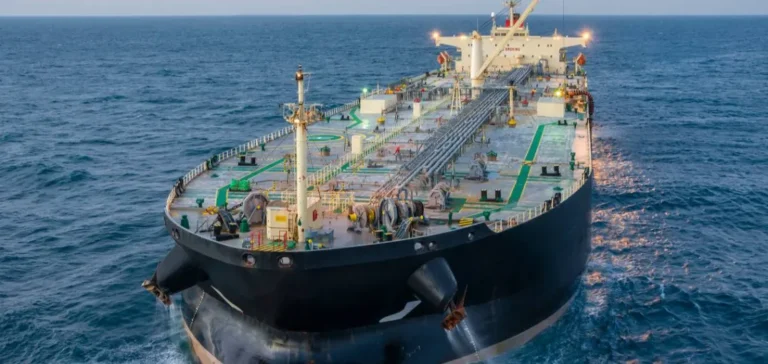A supertanker chartered by Unipec, the trading arm of China Petroleum and Chemical Corporation (Sinopec), changed course over the weekend from the Chinese port of Rizhao following new US sanctions targeting a local oil terminal. The Very Large Crude Carrier (VLCC) New Vista, carrying two million barrels of Upper Zakum crude from Abu Dhabi, redirected its destination to the ports of Ningbo and Zhoushan.
According to data provided by LSEG, the vessel had been scheduled to discharge its cargo in Rizhao on October 12. The change came two days after the US Department of the Treasury announced new measures targeting the Rizhao Shihua oil terminal in Shandong province. The terminal is 50% owned by a Sinopec logistics subsidiary.
Operational impact on the Chinese group
The sanctions have an immediate effect on Sinopec’s operations, with the group handling approximately one-fifth of its crude oil imports through the Rizhao terminal. This logistics hub, located in Lanshan district, is considered strategic for energy supply across northeast China. The New Vista’s rerouting suggests an effort to avoid regulatory non-compliance with international partners.
The US Treasury justified the measures by stating that the terminal had received Iranian crude oil from already-sanctioned vessels. Additional entities were also targeted in the same round, including independent refineries and shippers involved in transporting Iranian liquefied petroleum gas (LPG).
Impact on oil supply logistics
The logistical adjustment imposes delays and may affect Sinopec’s short-term crude import costs. Neither the parent company nor Unipec responded to requests for comment regarding the decision to redirect the vessel. However, the quick route change appears to be a precautionary step to secure the supply chain.
This situation highlights the tangible implications of US secondary sanctions on Chinese energy infrastructure, particularly those linked to Iranian oil trade. The Shandong region hosts a significant portion of China’s independent refining capacity, further underlining the strategic relevance of the sanctioned terminal.






















